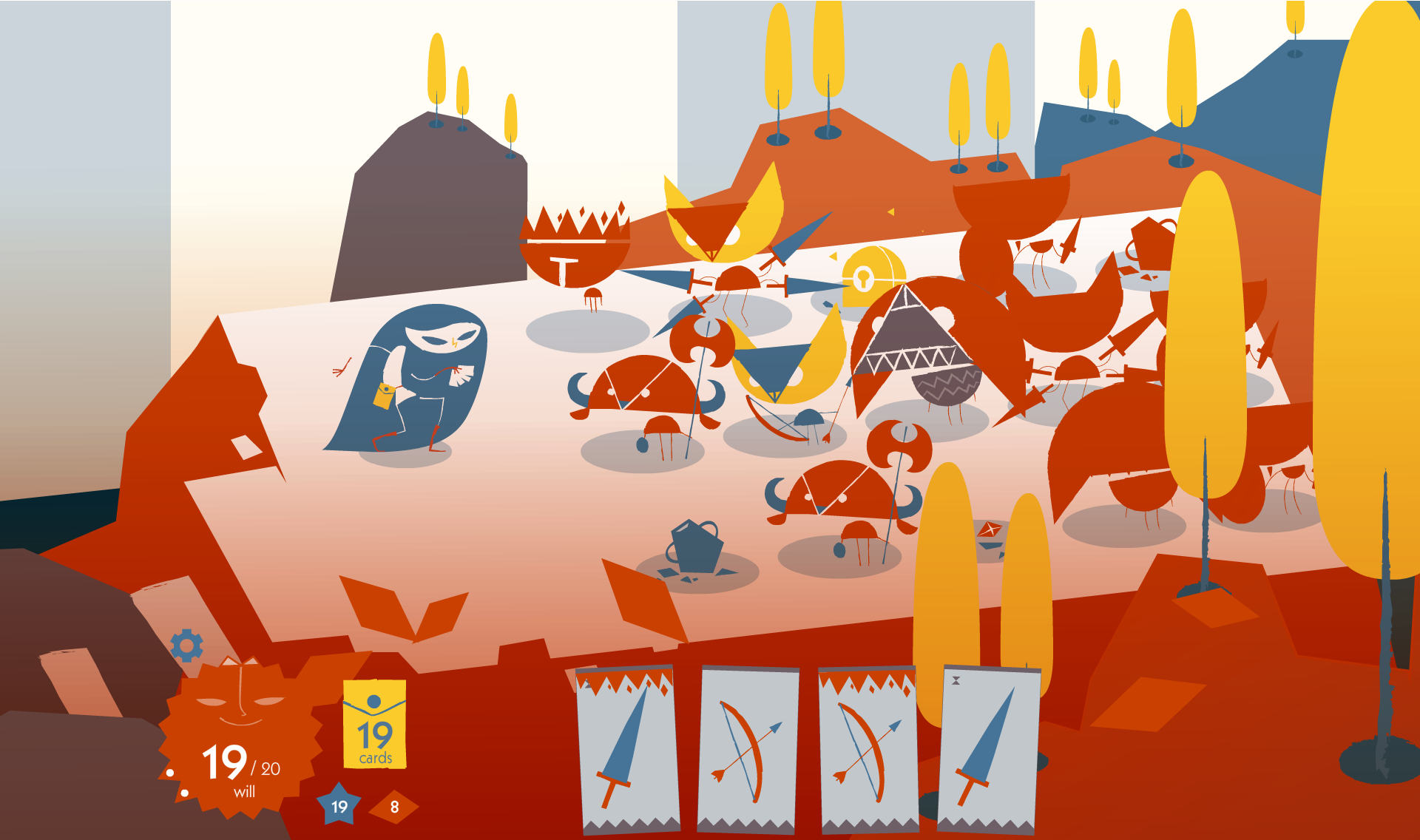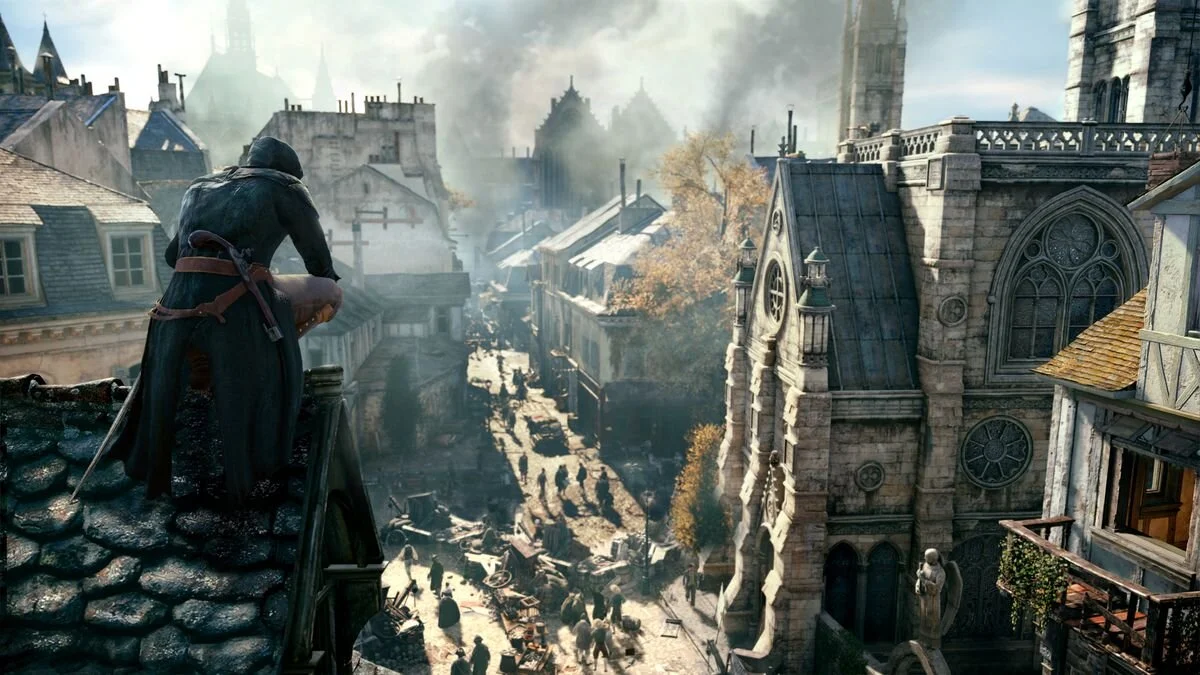Ty Galiz-Rowe on Why 2020 Was the Year of the Deckbuilder | Winter Spectacular
Trends in gaming are nothing new. Every year brings a new wave of design and style choices. There was one, in particular, this year that felt almost hand-tailored for me and my tastes: deckbuilders. Throughout the year we've had a variety of titles drop, from Thronebreaker which is set in The Witcher universe, to the tower defense hybrid that was Monster Train. While no one could have predicted the particular cocktail of bizarre events and disasters 2020 turned out to be, the number of deckbuilders, particularly those with roguelike elements, that came out feels fortuitous, to say the least. After all, they're quite literally a genre dedicated to the notion of triumphing over life's hardships by utilising whatever hand you're dealt.
Iris and the Giant might be my favourite looking game of the year… and I found out about it yesterday.
Nowhere Prophet, which was ported to the Switch this year, and Signs of the Sojourner both deal with life and community in the post-apocalypse, though through very different lenses. Nowhere Prophet asks you to take control of a convoy as its spiritual leader and prophet. The world around you is established to be a harsh and cruel one, and it's up to you to decide how you will respond in turn. The survival of both you and your followers depends on how well you are able to navigate your path, and though not always, violence is often necessary. Meanwhile, in Signs of the Sojourner, survival is directly tied to your ability to navigate conversations and relationships. Instead of commanding frightening beasts and technomancers, your cards are different bits of language and slang you pick up on your travels. The tension arises from having to balance your varied experiences with those of both the people you encounter and those you leave behind at home.
Things aren’t looking great for Mr. Righthand-side of The Board.
Nowhere Prophet's bleak desert world instils that life will inevitably move forward, no matter how bad things get. All we can do is push onward with some kind of faith, even if it's just in your ability to put one foot in front of the other. Signs of the Sojourner meanwhile explores the space that can grow between people as they experience different life moments, and highlights that communication, while necessary for any relationship's health, is inherently fraught at times. But that doesn't mean it's not worth trying to bridge those gaps for the right people.
Iris and the Giant asks us to look inside ourselves and deal with our weaknesses and vulnerabilities through the lens of childhood imagination. The protagonist, Iris, is a young girl who is struggling with feelings of deep sadness and isolation. Iris turns inward and the game's landscape becomes her take on Greek mythology. Minotaurs, gorgons, and other dangerous legendary creatures, all drawn in Iris' unique style. Despite the pain, discomfort, and alienation her sorrow makes her feel, Iris is able to cope with it in a healthy way by processing it through the card game.
No matter how many tries it takes, Iris is able to keep trying to get a handle on the pain she's feeling, and make changes for the better. I'm generally not a fan of attempting to gamify mental illness, and I don't think Iris and the Giant is perfect, but if there was ever a genre to represent trying to cope with mental illness it would definitely be roguelike deckbuilders. There's no one way to move forward, and each time you make a start you'll probably have different resources. And even if you get completely wiped, there's still a chance as long as you don't quit, and slowly you can learn tricks to get further than you had before.
This train ain’t big enough for us all.
Monster Train is honestly just fun. I couldn't tell you much about its story or lore beyond the basic premise, but it's a fun take on a type of game I've really come to enjoy and that's worth celebrating on its own. Looking back, I can't say that many other games that came out this year were inherently just fun to experience. But Monster Train was such a blast in a time when everyone has needed all the serotonin they can get, I bought it for two friends to make sure they played it too. It's an experience I was so excited to share, and that's worth a lot to me as it gets harder and harder to genuinely be excited about games.
The year is coming to an end, and time is marching forward. We're all gearing up for our next run, Hopefully, it'll be a good one.









